Waikato taniwha rau, he piko he taniwha, he piko he taniwha, he piko he taniwha.
Tihei Mauri Ora!
Tuatahi me mihi ki te Atua, te arepa, te omeka.
Tuarua ki te Kīngi, ko Tuheitia, e noho mai i runga i te ahurewa tapu o te Kīngitanga.
No reira e ngā mate katoa. Haere, haere, haere atu ra. Moe mai i roto i te Ariki.
Tēna koutou te hunga ora. Tātou kua hui mai nei i runga i te kaupapa o te wa.
Ka huri ahau ki te reo Pākeha
Mayor Julie, Deputy Mayor Gordon, councilors, distinguished guests, all gathered here this evening, I extend my warmest of greetings to each of you on behalf of the Anglican Diocese of Waikato and Taranaki, on this special day; it so very good to welcome you here to this Cathedral church of St Peter. I was just reflecting to myself that on Friday I celebrated my half-year anniversary of being bishop – quite a way to go yet to reach 150!
‘Only connect…’ The epitaph which the novelist E.M. Forster set at the beginning of Howards End, written four years before the start of the First World War – speaks powerfully of the need to be in relationship with those around us, and the places we inhabit, not in superficial ways, but in ways that have a deep impact on our identities. Howards End speaks about the lives of two sisters who take very different paths in life, and how those paths ultimately offer opportunities for reconciliation; connectedness between seemingly polar opposites in both the inner and the outer life.
‘Only connect…’ the morning after my election as bishop of Waikato was announced, I found myself in the rather unlikely place of singing the Moo-loo song live on local radio, at 6.45am. A reminder that the role of bishop needs to connect with arguably the greatest religion of this nation: rugby. Well, the Chiefs didn’t manage a third Super Rugby title, but Sonny Bill isn’t too far away, and ok Waikato didn’t win on Friday, but still, my faith in local teams remains undiminished. A moo-loo bell sits on my desk as a reminder of where my sporting allegiances lie!
‘Only connect the prose and the passion and both will be exalted, and human love will be seen at its height.’
I wonder where in that quote from Howards End you sit in the story of this city? Are you in the prose, the narrative; or are you in the passion, the song of potential and creativity that lifts us literally off the page and into new possibilities? Are you in both? Perhaps at times we can all be stuck in the words, the doings, the strategic planning, and need our imagination to be inspired in new ways. In this season of electioneering, there are all sorts of complementary and conflicting visions around, with great potential, if only we could connect imagination with practical reality a bit more easily. It has been said of course, that politics and religion don’t mix. And yet, the heartbeat of faith is a desire for God, a desire to be more Christ-like; the heartbeat of politics is a desire to build a better, safer, more inclusive society. Both intersect with explosive possibility in our readings this evening. If only we could connect what we read and hear with what we imagine might be truly possible, things as yet unseen, but surely within reach?
‘Only connect…’
This morning we celebrated and commemorated the founding of the city of Hamilton; this evening we are invited to connect that event with an Anglican service of worship on this site, also 150 years ago on this day. Hamilton was named after Captain John Hamilton, the navy general who fought and died at the Battle of Pukehinahina in Tauranga, and this city so named after him came into being on a place where tangata whenua had lived for hundreds of years, the settlement at Kirikiriroa. So today is a commemoration also of an ongoing process of growth, and of reconciliation which has, over the years, brought a deeper sense of connection and collaboration between Māori and Pākeha, and beyond that with the many cultures that make up this city, and give it its unique vibrancy and creative energy. As we remember the history that made us who we are, we re-member, reassemble our identity in the light of all that has gone before, with regret for any wrongs that have happened, and a strong sense of needing and wanting to do things better together moving forward.
The prophetic imaginings of Jeremiah in our first reading implore us to think creatively into the future, but at the same time, not to ignore the things in our midst, which we may give little regard to. Jeremiah’s words entreat us to ‘seek the welfare of the city where I have sent you into exile, and pray for the LORD on its behalf, for in its welfare you will find your welfare’ (v. 7), and ‘seek’ has both a present and a future meaning. Now we aren’t in exile, but I wonder how many inhabitants of this city do feel a sense of exile, displacement and disconnection? By seeking the welfare of all who live in our city, and who come here for whatever reason, we have an opportunity to grasp the shocking responsibility of our own well being as bound up with the person sitting right next to us. In the age of social media selfies, this is an assertion of ‘I am because you are’ and not ‘it’s all about me’! ‘Only connect…’
The Biblical narrative begins in a garden and ends in a city. There is something quite profound about the way God leads us through history, putting us in situations where we bear responsibility for shaping and caring for our environment, like Adam in the Garden of Eden, but also in relationship to others, which is why the development of the city is a connected image, and why the life of the city matters for all its inhabitants as a place where all can flourish. By the time we reach the end of the Biblical narrative, in the book of Revelation, from where our second reading is taken, we don’t just have an earthly city in view, but a reimagined heavenly city. So at the very least, this might suggest a need to think about how time and space are used in a city.
Everything from town-planning to city events offer opportunities to connect people and place more strongly together. The vision set out in Revelation may be aspirational, but it represents the mapping out of a place where all may prosper and be cared for. But that also represents a challenge, because Revelation in its prose represents an Apocalyptic genre, a passionate manifesto with an edge.
Not long after I was installed as bishop, I spent an inspiring hour or so with Mayor Julie; after our conversation, during which we spoke of the many challenges that the city and surrounding areas face – we stood and looked out of her office, high up at the top of the building, over Garden place – I was struck by the amount of green I saw; in the midst of the busyness of the city, God’s creation gave us a much needed perspective on our common work: to seek the welfare of all those entrusted to our care.
‘Only connect…’ sooner or later you have to cross a bridge in this city; the first one, appropriately named the ‘Union Bridge’ was opened in 1878. The river in so many ways defines us: Waikato taniwha rau, he piko he taniwha. Creation points us to God’s kingdom and the reality that God’s kingdom is here, all around us: in the beauty of this city, in the river that runs through it, in the swirling currents of all creation, in the lives that enabled this Cathedral church to come into being, in the work of faithful witness that keeps this place as a visible sign in this city community, high up on Pukerangiora hill – the hill that reaches to the heavens: not simply to draw people to it, but as a reminder that to be the Body of Christ means first and foremost that we are called out beyond these walls to be God’s people wherever we go, and in whatever we do. At this end of this service we will go outside and I will pray for the city, for God’s blessing to be upon it, for peace and harmony within and without.
A few days ago I decided to sort through some of the ever-increasing piles of papers and cards on my desk! One of the cards that I came across had on its front a picture of an unfolding fern, a koru, with the following words:
Our lives are defined by stories. We must ask ourselves, to which story do I belong?
Is it a story of anxiety, or a story of hope? It is a story written in prose and in passion, in words and in song, the song we heard this morning so beautifully written, composed and performed by pupils and staff of Woodstock School:
Aroha for tangata whenua
Aroha for all,
Aroha for Hamilton city,
Aroha from the soul.
Deep below lies the taniwha
Kaitiaki of Te Awa,
Protector of tangata whenua
Carer of us all.
This city speaks of hope, of persistent and careful faith, of dedicated service, it speaks of all our lives, woven together in the stone and timber, the streets and green places, the river and the lake, the brokenness and the making whole. The Christian Gospel is a story that, in one interpretation is riddled with worry, pain, shame, and disappointment even. But in the many shadows of our lives, the new life that breaks through is the light of the resurrection, that dawn of God’s breaking into the death and despair of our world to assert that there is a way forward in which all may contribute and prosper.
‘Only connect. That was the whole of her sermon. Only connect the prose and the passion and both will be exalted, and human love will be seen at its height. Live in fragments no longer’.
Thanks be to God for 150 years of this city, and for the many years of life before its foundation; thanks be to God for 150 years of Christian worship and witness in this city, and may we face the next 150 years with renewed energy, inspiration, commitment and hope, continuing to lay solid foundations for generations of Hamiltonians yet to be born. Kororia ki te Atua!
Amine.
CITY BLESSING
Heavenly Father, in your Word you have given us a vision of that holy City to which the nations of the world bring their glory: Behold and visit, we pray, the cities of the earth, and especially this city of Hamilton.
Renew the ties of mutual regard which form our civic life.
Send us honest and able leaders. Enable us to eliminate poverty, prejudice, and oppression, that peace may prevail with righteousness, and justice with order, and that women and men from many cultures and with differing talents may find with one another the fulfillment of their humanity; and the blessing of God Almighty, te Matua, te Tama, ki te Wairua Tapu, rest upon this city and upon each of us this night and for evermore.
Amine.
Kororia ki te Atua!







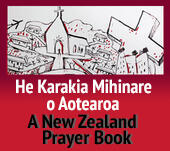
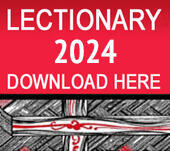


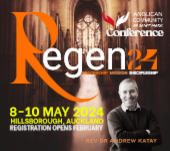
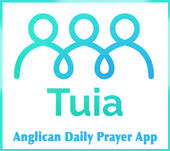

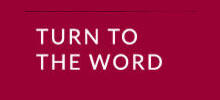


Comments
Log in or create a user account to comment.